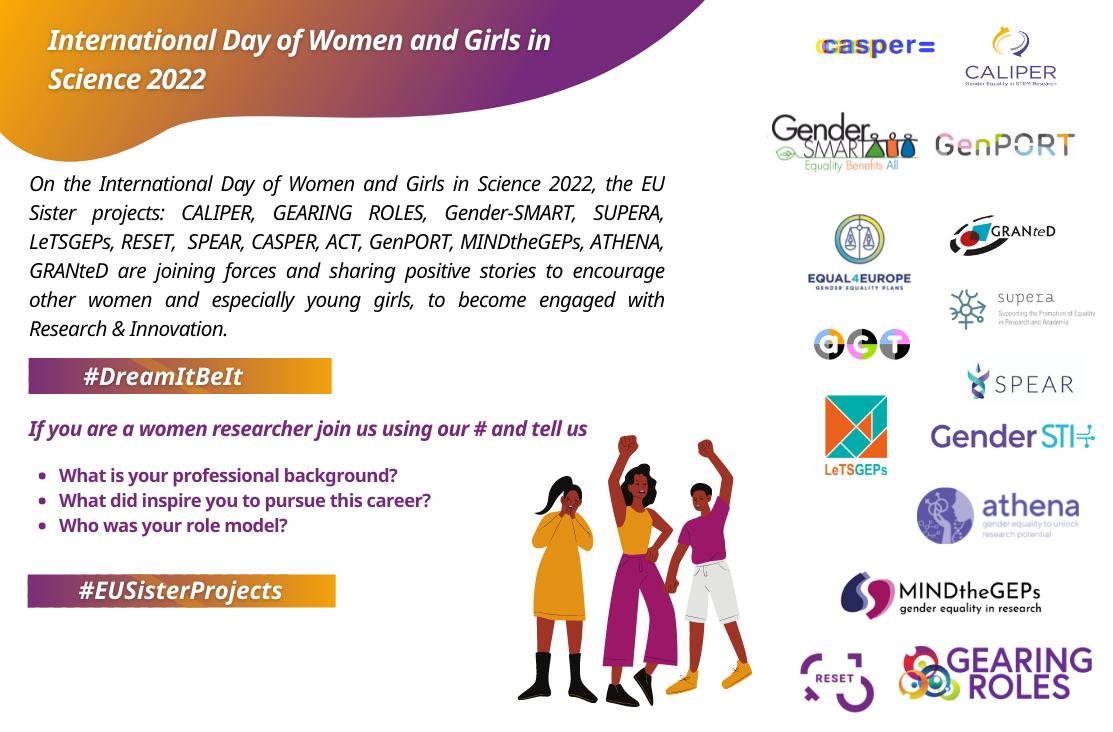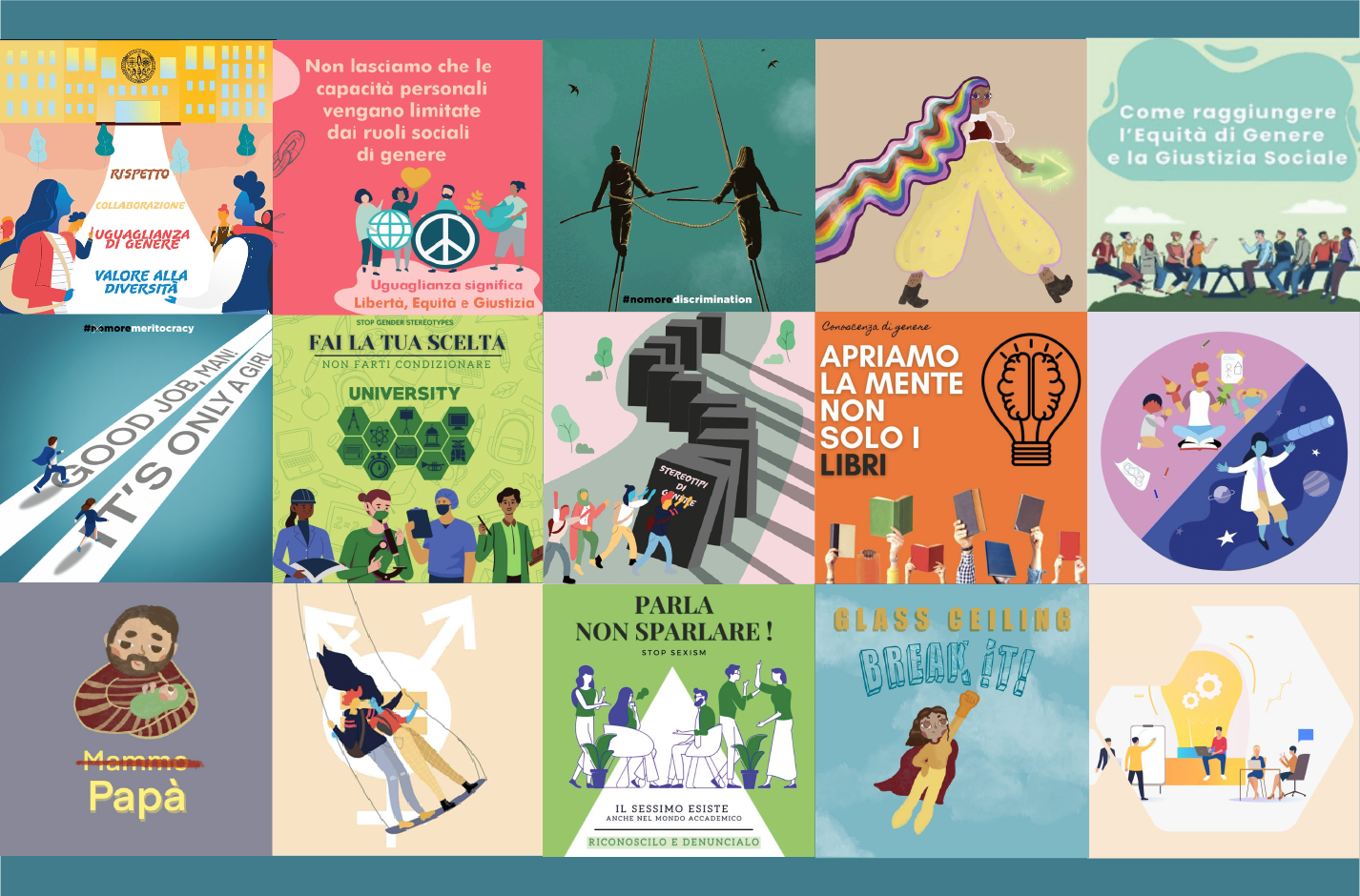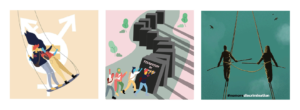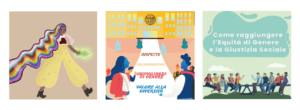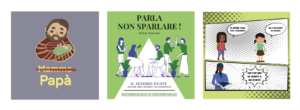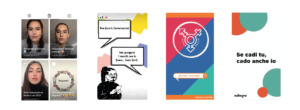Dream it, be it! A joint campaign for 11/02
On the International Day of Women and Girls in Science, 11th February 2022, the EU Sister projects CALIPER, Gender-SMART, SUPERA, LeTSGEPs, RESET, SPEAR, CASPER, ACT, GenPORT, MINDtheGEPs, ATHENA, GRANteD, Gearing-Roles, Gender STI and EQUAL4Europe are joining forces in order to share inspiring stories to encourage other women – and especially young girls – to pursue a career in Research & Innovation (R&I).
On the 11th and 12th of February 2022, we invite you to join our campaign by sharing your stories as women researchers, focusing on what did inspire you them to pursue your career.
The campaign is based on 3 inspiring questions, that are meant to be answered shortly to fit in the poster:
1. What is your professional background?
2. What did inspire you to pursue this career?
3. Who was your role model?
Download the editable Response template [power point format] and share it on social media. You are more than welcome to include photos in your posters. Don’t forget to use our hashtags #DreamItBeIt and #EUSisterProjects and tag us!


